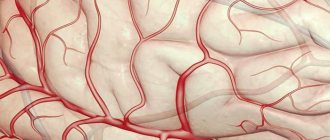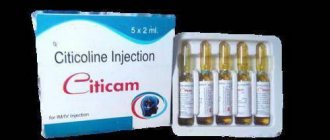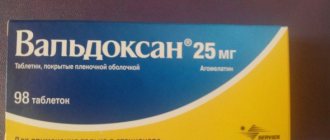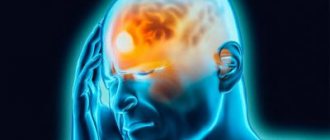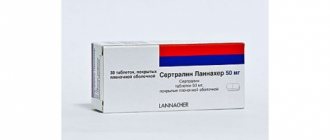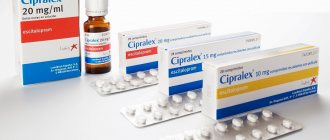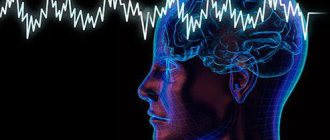general characteristics
So, this drug is an antipsychotic and an atypical antipsychotic used in psychiatry. It is used to organize therapy for pathologies such as schizophrenia, depression, bipolar disorder and others.
The drug works very simply. “Quetiapine” (instructions for use of this medicine are necessarily included in the kit) tends to change the activity of certain substances located in the brain. This product is produced in Russia. However, this does not mean that its cost is too low. It all depends on the dosage of the drug purchased.
What components are included in the medicine, what form of release is there?
So, if you have been prescribed Quetiapine, the instructions for use describe its composition as follows: quetiapine fumarate (main active ingredient) 25-300 mg. Additional components are also present: hyprolose, calcium hydrogen phosphate dihydrate, microcrystalline cellulose, magnesium stearate, starch, primogel. The film shell of each tablet consists of talc, glycerin, hypromellose, and silver dye.
The tablets are round, convex on both sides. They are blue in color with a pearlescent sheen. In addition, they have different dosages. Tablets are packaged in blister packs of 30 or 60 pieces and placed in a cardboard box.
Quetiapine: instructions for use and reviews of those taking the drug
Antipsychotic drugs are used to treat a variety of mental disorders. They are prescribed only for special indications and are available with a doctor's prescription. A popular drug in this group is Quetiapine, which, according to the instructions for use, is a rather aggressive drug and can only be used in adult patients.
General information
Quetiapine is a chemical that belongs to the category of atypical antipsychotics. Drugs based on it are prescribed for the treatment of various mental illnesses.
Drug group, INN, application
This drug belongs to the group of antipsychotic drugs. Such drugs act on brain receptors, causing an antagonistic effect. The international nonproprietary name depends on the content of the active component in the medicine, which determines its effect on the body. The INN of this product is the same as its trade name – Quetiapine.
The area of use of the drug is psychiatry. It can be prescribed as a standalone medicine for mental disorders or as an additional remedy in the treatment of depressive conditions (in combination with antidepressants).
Release form, cost
The medicine is produced in the form of tablets for internal use. These tablets are round or oval in shape. They are packaged in plastic blisters of 10 pieces. A cardboard box contains 30 or 60 tablets.
Quetiapine is produced by different pharmaceutical companies, which explains the difference in price. Also, the cost differs depending on the content of the active ingredient in 1 tablet. Examples of prices in different pharmacies in large Russian cities are given in the table. The product is released only with a special doctor's prescription.
quetiapine, manufacturerPharmacy, city nameCost per pack of 60 pieces in rubles
| 300 mg (Canonpharma) | Vitamin, St. Petersburg | 2880 |
| 200 mg (Vertex) | Vitamin, St. Petersburg. | 2238 |
| 100 mg (Northern Star) | Vitamin, St. Petersburg. | 892 |
| 25 mg (Northern Star ZAO) | BALTIKA-MED, St. Petersburg | 242 |
| 100 mg (Vertex) | BALTIKA-MED, St. Petersburg | 1105 |
| 25 mg (Northern Star JSC) | Pharmacy "IFK", Moscow | 253,90 |
| 300 mg (Canonpharma) | Online pharmacy 36.6, Moscow and region | 2771 |
| 200 mg (North Star) | Dialog, Moscow and region | 2024 |
Kvetiron and Quetiapine prolong
Quetiapine-based drugs can be produced under different trade names. Moreover, they all have identical composition and mechanism of action. The most popular of them:
- Kvetiron;
- Quetiapine Canon;
- Quetiapine Stada;
- Sertivel;
- Kvetitex and many others.
A special form of the drug is Quetiapine Prolong. It is available in the form of extended-release tablets. Their distinctive feature is the slow release of the active component, which allows you to take the medicine once a day.
Instructions for use of the drug Zalasta and reviews about it
Composition and pharmacological properties
The medicine contains the active ingredient quetiapine. One tablet may contain 25, 100, 200 or 300 mg. Additionally there are auxiliary components. These are lactose, cellulose, calcium hydrogen phosphate, sodium starch, povidone, polyvinyl alcohol, titanium dioxide, talc and dyes.
The pharmacodynamics of the drug is related to the action of its active component – quetiapine. This substance is an atypical antipsychotic that affects brain neurotransmitters. It binds to a greater extent to serotonin receptors, while its activity is much lower in relation to dopamine receptors.
Pharmacokinetics of the drug
This provides an antipsychotic effect and a reduced risk of extrapyramidal side effects compared to typical antipsychotics. A connection between quetiapine and histamine and adrenergic receptors has also been revealed, while there is no effect on cholinergic muscarinic, benzodiazepine and GABA receptors.
Pharmacokinetic features:
- well absorbed after oral administration;
- bioavailability is high;
- more than 80% binds to blood proteins;
- metabolized in the liver with the release of active metabolites (the main one is norquetiapine);
- excreted in the form of metabolites and unchanged along with urine and feces;
- half-life takes from 7 to 12 hours.
The action of the drug is based on the activity of quetiapine, an atypical antipsychotic that can suppress negative reactions of the central nervous system.
Indications and restrictions
The drug is used as prescribed by a doctor if there are appropriate indications. It is prescribed for the following conditions:
- Schizophrenia.
- Bipolar mental disorders. It is used to treat manic and depressive states.
- The medicine can also be used to prevent relapse of bipolar disorder.
Schizophrenia
The medicine has some contraindications that should be taken into account before prescribing it. It is prohibited to use it in the following cases:
- individual intolerance to components;
- lactase deficiency, glucose-galactose malabsorption;
- simultaneous use of certain cytochrome P 450 and HIV protease inhibitors;
- children and teenagers of any age.
There are also restrictions under which the drug can be used, but with extreme caution and under the supervision of a physician. Among them:
- cardiovascular diseases (myocardial hypertrophy, congestive heart failure);
- arterial hypotension (against the background of cardio- and cerebrovascular diseases);
- simultaneous use of other antipsychotics and drugs that depress the central nervous system;
- hypokalemia;
- hypomagnesemia;
Hypomagnesemia
- tendency to convulsive states;
- liver failure;
- risk of stroke or pneumonia;
- combination with alcohol.
Pregnant women can be prescribed the drug, but only if the expected benefit from it outweighs the possible risk of complications in the fetus.
There is evidence of negative reactions in newborns if the mother took Quetiapine in the 3rd trimester of pregnancy.
In this case, withdrawal syndrome, agitation, tremors of the limbs, decreased blood pressure, drowsiness, and deterioration of respiratory activity were observed.
The active substance is able to pass into breast milk, but its amount has not been established. If a woman needs to take such a drug, then breastfeeding should be stopped.
special instructions
Quetiapine has an aggressive effect on the central nervous system. Therefore, when using it, you should adhere to special rules:
- The drug is not used in pediatric practice. Children are more likely to develop negative reactions.
- Depression and other psychoses can provoke suicidal thoughts in the patient. Therefore, he should be monitored during treatment with antipsychotics.
- Use the drug with caution if the patient has anticholinergic muscarinic effects.
- The drug may cause weight gain. Therefore, patients need to constantly monitor their weight.
- Taking the medication leads to increased levels of bad cholesterol and triglycerides. These indicators should be monitored and, if necessary, special treatment should be prescribed.
Weakness and dizziness may occur while using the drug. Therefore, during the treatment period, you should avoid driving a car and operating machinery that requires increased attention.
Pharmacological interaction
Before prescribing Quetiapine, it is important to consider its interaction with other medications:
- Combine it with caution with drugs that depress the central nervous system.
- You should not drink grapefruit juice during treatment with the drug.
- Combination with CYP3A4 inhibitors is prohibited.
CYP3A4 inhibitors - Carbamazepine reduces the concentration of quetiapine in the blood, which reduces its antipsychotic effectiveness.
- Caution must be exercised when using other neuroleptics, antiarrhythmic drugs, levomethadyl, mesoridazine, pimozide, sertindole, moxifloxacin.
The drug should not be taken with alcoholic beverages. This can lead to serious consequences and even death.
Instructions for use of the drug Alora and reviews about it
Side effects, signs of overdose
The medicine can provoke many negative reactions. The most common side effects that occur are:
- drowsiness;
- headaches, dizziness;
- withdrawal syndrome;
- increased appetite, which provokes weight gain;
- inhibition of hematopoiesis (leukopenia, neutropenia, agranulocytosis, anemia);
- allergic reactions on the skin (redness, itching, burning, erythema);
- anaphylactic shock;
- exacerbation of diabetes;
- hyponatremia;
Hyponatremia
- increased levels of glucose, triglycerides and low-density lipoproteins;
- extrapyramidal disorders;
- convulsive conditions;
- vision problems;
- epilepsy attacks;
- muscle disorders (arthralgia);
- dyskinesia;
- abnormal behavior;
- nightmares, talking in sleep;
- suicidal tendencies;
- cardiac disorders (tachycardia, bradycardia, increased heart rate);
- orthostatic hypotension;
Orthostatic hypotension - thromboembolism;
- dyspnea;
- digestive disorders (nausea, vomiting, constipation, intestinal obstruction);
- pancreatitis;
- increased levels of liver enzymes, jaundice and hepatitis;
- angioedema;
- disturbances of the menstrual cycle and sexual function;
- asthenic syndrome;
- peripheral edema;
- increase or decrease in body temperature;
- neuroleptic malignant syndrome.
Neuroleptic malignant syndrome
Taking too large a dose of the drug leads to the development of overdose symptoms. In this case, the following are observed:
- increased heart rate;
- decrease in blood pressure;
- general weakening, sedation;
- development of convulsions, epileptic seizures;
- respiratory depression;
- urinary retention;
- confusion, delirium;
- coma.
Such anomalies can be fatal. If such symptoms appear, the patient should be taken to a medical facility. There he is given gastric lavage and sorbents are prescribed. It is important to monitor the activity of the respiratory and cardiovascular systems. Next, symptomatic therapy is prescribed.
Instructions for use of the drug Alprazolam and reviews about it
Pharmacological action of the drug
Have you been prescribed Quetiapine? The instructions talk about the following pharmacodynamics: the main component is able to fight a large number of receptors, especially serotonin ones. In addition, it exerts an antagonistic effect on histamine and dopamine receptors, although to a lesser extent. That is, the effect of the drug is based on blocking certain receptors in brain cells and inhibiting metabolism in them.
The absorption of the product is optimal. At the same time, food intake has virtually no effect on the bioavailability of the drug. The substance accumulates in the liver, where it is neutralized. Excretion is largely carried out through the kidneys (78%) and through feces (20%). The half-life from the body is approximately 7 hours. It should also be taken into account that cleansing the body of the drug largely depends on the age of the patient and the functionality of his liver.
The drug quetiapine - action and effect
There is evidence that quetiapine is used as a narcotic drug by prisoners in American prisons. Individuals with chemical dependency receive it to treat withdrawal symptoms. It has a pronounced effect due to its selective effect on serotonin receptors, which reduces the risk of unpleasant consequences.
Due to its psychoactive effects, quetiapine is subject to abuse. It is used not only to achieve sedation, but also to prolong the effect of other drugs. By purchasing quetiapine and using it together with drugs of the opiate group, you can get a more intense effect.
What indications for use are there?
For some mental disorders, doctors prescribe Quetiapine. The instructions provide the following indications for use:
1. Schizophrenia.
2. Acute or chronic psychoses.
3. Bipolar disorder, its moderate to severe manic phase (although pills cannot prevent this condition).
4. Depressive state.
5. Serious behavioral disorders.
6. Dementia in the elderly.
7. Organic brain syndromes.
Be that as it may, you should consult your doctor before taking it. Moreover, the product can only be purchased with a prescription.
Contraindications for use
When prescribing the drug "Quetiapine", instructions for use, reviews and description of the drug will help you understand its action. It is important to familiarize yourself with the prohibitions and restrictions under which the medicine is not recommended to be used. There are the following contraindications:
— Too high sensitivity to the drug.
— Age (up to 18 years).
— The period of bearing a child and breastfeeding.
- Simultaneous use of certain drugs: antifungals, Erythromycin.
— Oncological diseases of the mammary glands and brain.
- Cataract.
- Dehydration.
— Severe systemic disorders in the body.
The medicine should be prescribed with caution if the patient has heart failure, arterial hypotension, cardiac malnutrition, liver failure, a history of seizures and epilepsy. In addition, elderly people and those at risk of developing thromboembolism should be especially careful when taking it.
Quetiapine addiction treatment
Quetiapine is an antagonist of dopamine, serotonin and adrenergic receptors. During its metabolism, the drug has an inhibitory effect on synapses. Abruptly stopping the drug may cause withdrawal symptoms due to changes in the receptors. To prevent a cascade of reactions from provoking a worsening of the condition, discontinuation of quetiapine tablets should occur gradually.
Discontinuation of the drug should be carried out under the supervision of a physician. He will prescribe the optimal dosage, which will avoid the development of receptor hypersensitivity. To prevent withdrawal syndrome, the drug will need to be taken for 4 to 8 weeks. If even with a gradual reduction in dosage it is not possible to avoid withdrawal symptoms, the doctor will prescribe additional medication support. In severe cases, the patient is hospitalized and undergoes infusion therapy and plasmapheresis.
Possible adverse reactions
Now you need to deal with the negative reactions that may appear as a result of using the drug “Quetiapine”. Instructions for use (tablets cannot be started or stopped without permission) provide for the following possible adverse reactions:
- Pain and dizziness, anxiety, emotional emptiness, drowsiness or lack of sleep, increased excitability and hostility, tremors, convulsions. In addition, a weakening of the functions of the autonomic nervous system may also be observed.
- Tachycardia, heart failure, orthostatic hypotension, chest pain.
- Nausea, dry mouth, vomiting, diarrhea or constipation, abdominal pain.
— Allergic rhinitis, skin rashes, pharyngitis.
— Decrease in the number of leukocytes in the blood, decrease in the concentration of thyroxine.
- Lumbar pain, vision problems, weight gain, dry skin.
- Ear pain, muscle weakness.
— Infection of the urinary canal.
As you can see, this medicine can give a lot of side effects, but if its effectiveness is higher than the likelihood of side effects, then the doctor has the right to prescribe the drug.
Side effects, signs of overdose
The medicine can provoke many negative reactions. The most common side effects that occur are:
- drowsiness;
- headaches, dizziness;
- withdrawal syndrome;
- increased appetite, which provokes weight gain;
- inhibition of hematopoiesis (leukopenia, neutropenia, agranulocytosis, anemia);
- allergic reactions on the skin (redness, itching, burning, erythema);
- anaphylactic shock;
- exacerbation of diabetes;
Neuroleptic malignant syndrome
Taking too large a dose of the drug leads to the development of overdose symptoms. In this case, the following are observed:
- increased heart rate;
- decrease in blood pressure;
- general weakening, sedation;
- development of convulsions, epileptic seizures;
- respiratory depression;
- urinary retention;
- confusion, delirium;
- coma.
Such anomalies can be fatal. If such symptoms appear, the patient should be taken to a medical facility. There he is given gastric lavage and sorbents are prescribed. It is important to monitor the activity of the respiratory and cardiovascular systems. Next, symptomatic therapy is prescribed.
Dosage and special instructions for use
So, if you still had to purchase Quetiapine, the instructions for use (the manufacturer of the drug is located in Russia) indicate the following dosage features:
- For acute or chronic psychosis, as well as schizophrenia, tablets are taken according to the following scheme: first day - 50 mg, second - 100 mg, third - 200 mg, fourth - 300 mg. Further, the daily norm can vary from 300 to 450 mg, depending on the severity of the pathology and the frequency of attacks.
- If the patient suffers from manic disorders due to bipolar disease, then the following dosage of the drug is provided: the first day - 100 mg, the second - 200 mg, the third - 300 mg, the fourth - 400 mg. By the 6th day of therapy, the doctor may increase the dose to 800 mg per day. The daily increase in the amount of the substance should not exceed 200 mg.
The standard daily dose of the drug for patients ranges from 400-800 mg. Particular care must be taken with elderly patients and people suffering from kidney or liver failure. Their starting dose is 25 mg per day. The daily increase in the norm is 25-50 mg. In this case, you should constantly monitor how the patient’s body reacts to treatment and increasing the dose.
There are also certain reception features. For example, it is better to take pills at the same time. Most often this is done in the evening before meals. The duration of therapy depends on its effectiveness, the general condition of the patient and the presence of undesirable consequences. Do not split or chew the tablet. You need to swallow it whole.
If you have not taken Quetiapine for more than a week, the instructions for use (the drug is effective only with constant use) recommend that you consult a doctor. You may need to start with a lower dose again. You cannot stop taking this medication without permission.
If an overdose occurs, which may be indicated by drowsiness, decreased blood pressure, and erratic heart rhythm, then the patient’s stomach should be rinsed immediately. After this, to prevent intoxication of the body, you need to give him a few tablets of activated carbon.
If the patient is unconscious after an overdose, be sure to call an ambulance. Specialists, in turn, must perform tracheal intubation, administer laxatives and symptomatic treatment.
Please note that orthostatic hypotension may develop while using the medication. In this case, the dose of tablets must be significantly limited. During therapy it is necessary to stop drinking alcohol.
Long-term treatment with high doses of the drug is possible only if, before starting to take the tablets, an assessment of the expected positive result, as well as the degree of potential risk, was carried out.
Quetiapine: instructions for use, price, reviews, analogues, side effects
Quetiapine is a neuroleptic drug used to treat various mental disorders and diseases.
Radar
Quetiapine is the Russian name; in Latin the drug is designated as Quetiapinum, and is produced under the brand name “Quetiapine Canon”.
This antipsychotic is registered in the Russian Medicines Register under the serial number LSR-008563/10 with the chemical formula C21H25N3O2S.
This medicine is available only in the form of flat dragees covered with a dense film shell. Their core is white, and the film is pearlescent blue.
Forms of the drug
Quetiapine tablets are available in various dosages:
- 25 mg each;
- 100 mg each;
- 200 mg each;
- 300 mg each.
A pack can contain 3 or 6 packages of 10, 15, 30 tablets each.
The advantages of this form of Quetiapine are that it is used once a day and the effect lasts until the next day.
Best before date
The drug is stored in a dark, cool place and does not lose its therapeutic properties for 4 years.
Source: https://psihbolezni.ru/lechenie/kvetiapin-instruktsiya-po-primeneniyu-tsena-otzyvy-analogi-pobochnye-effekty/
Interaction with other medications
This issue is very important, since the treatment of psychosis and schizophrenia is complex. Particular attention should be paid to the interaction of Quetiapine with other drugs that affect the functioning of the central nervous system. They may have an additional sedative effect. Do not take the presented tablets with grapefruit juice.
Some drugs may reduce the effectiveness of Quetiapine, for example, Carbamazepine, Phenytoin. A substance such as thioridazine can increase the degree of cleansing of the drug from the body by up to 70%.
When can I take the drug, after how long?
Doctors warn against the simultaneous use of antipsychotic substances and alcohol. Therefore, there should be no alcohol in any concentration in the human body.
How soon can you start therapy?
- single use of alcohol – at least 2 days;
- frequent consumption of alcoholic beverages – 1 week;
- alcoholism - treatment in a drug treatment clinic or at home under the supervision of a doctor, at least 5 weeks must pass from the moment the last dose was taken.
If the patient remains in treatment for addiction and is using an antipsychotic, the doctor may periodically order toxicology tests to screen for alcohol.
Features of storage of the product
If you are prescribed Quetiapine, the instructions for use (you will consider analogues below) provide for the following shelf life of the product: 2 years. It must be stored in a place protected from light. It is advisable that children cannot reach the drug. The temperature at which the product can retain its properties is 25 degrees.
Do not place the package with the drug near heat sources. After the expiration date has expired, the product is strictly prohibited from being used.
special instructions
During treatment with Quetiapine, orthostatic hypotension may occur, mainly at the initial stage of therapy. It should be noted that this is especially true for elderly patients. Although a connection between treatment with Quetiapine and an increase in the QTc interval has not been identified, caution must be exercised when simultaneous therapy with drugs that can prolong the QTc interval. If during treatment the number of neutrophils decreases to 1000/μl or less, then stop taking the drug.
Typically, the development of orthostatic hypotension requires a reduction or slowdown in dose titration. This drug is not prescribed for psychoses associated with dementia. The manifestation of symptoms of tardive dyskinesia also requires a reduction in the dosage of Quetiapine or gradual discontinuation of the drug, while undesirable symptoms may persist even after cessation of treatment.
The development of neuroleptic malignant syndrome also requires discontinuation of the drug. Given the effect of this drug on the nervous system, caution must be used when prescribing other drugs that also depress the nervous system.
Sometimes when treating children and patients under 24 years of age who suffer from depression and other mental disorders, they may experience suicidal thoughts or behavior. For this reason, it is necessary to take into account the importance of such therapy and the risk of adverse events, and to constantly monitor such patients.
It has been established that Quetiapine causes drowsiness, so when taking tablets you should refrain from driving and performing various tasks that require special attention and speed of reactions.
Reviews about the medicine
If you need to purchase Quetiapine, the instructions for use (reviews will help you understand the effect of the product) is the main document that you must read before using the substance.
Patients talk about this medication in different ways. They note the effectiveness of the drug. However, there are also side effects. For example, patients note muscle weakness, clouding of consciousness, and nausea.
As you can see, “Quetiapine” (instructions, patient reviews are already familiar to you) is a serious drug that is not sold over the counter in pharmacies. Also note that you need to be very careful when using the product. Be healthy!
Consequences of drinking alcohol
If the ban on the simultaneous use of substances is violated, the following consequences occur in the body:
- strengthening of the effect of psychosis, the person becomes inadequate, capable of any actions;
- if schizophrenia is treated, the disease worsens;
- the incidence of delusions, hallucinations and delirium tremens increases;
- inflammation of the liver and kidneys with prolonged use of both substances;
- when the liver is inflamed, the patient’s skin becomes yellow, itching and spider veins occur;
- muscle pain;
- skin allergic reactions;
- decreased body resistance to bacteria, genitourinary infections often occur, for example, pyelonephritis, cystitis;
- body temperature rises;
- the patient constantly feels sick and vomits periodically;
- stool changes, diarrhea or constipation may occur.
Negative consequences occur even with a single use of ethanol and the drug.


